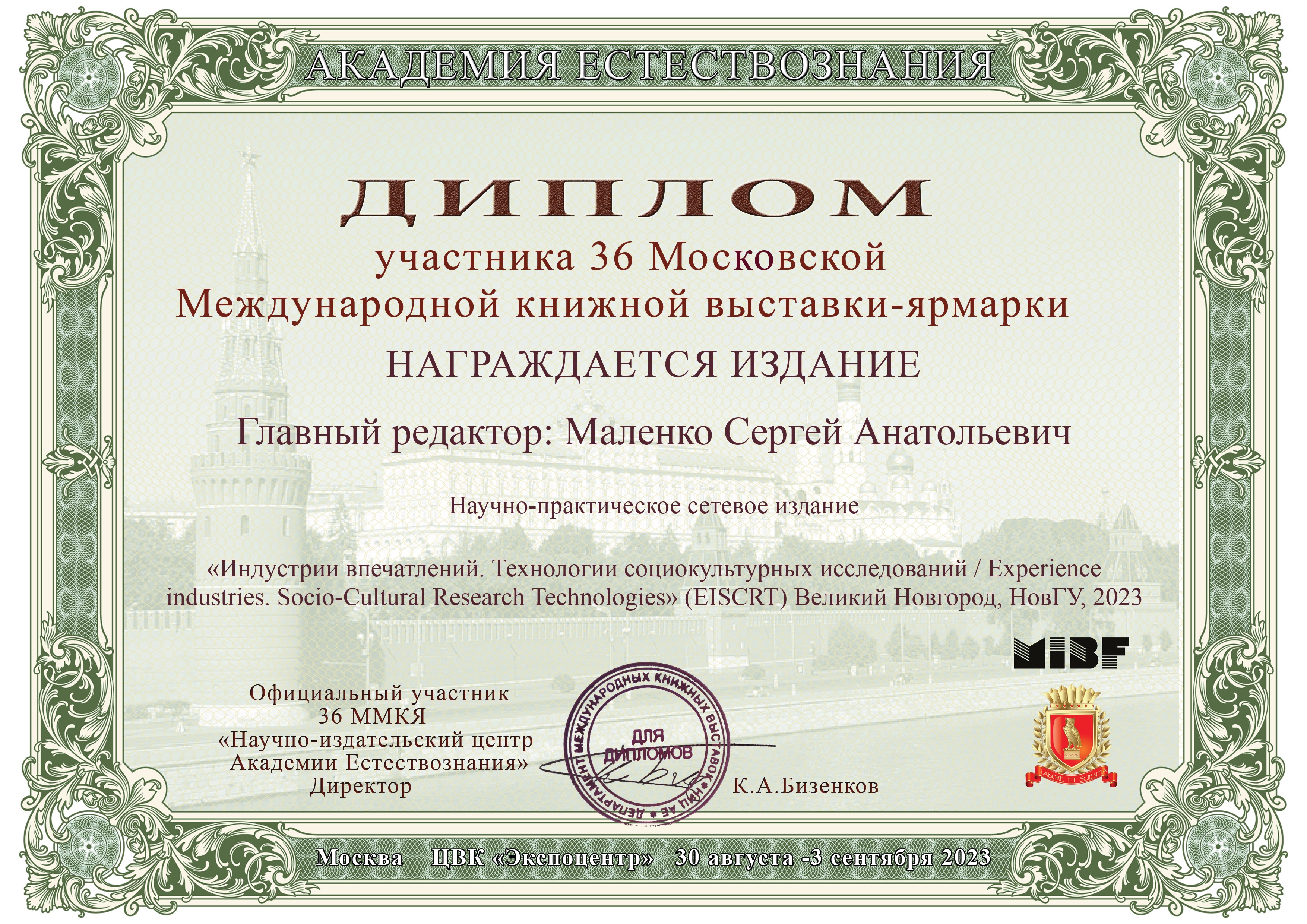VISUAL FILM MYTHS OF THE SOVIET ERA IN THE IDEOLOGICAL CREATION OF A "NEW" PERSON
DOI:
https://doi.org/10.34680/EISCRT-2022-1(1)-99-116Keywords:
nostalgia, impression industry, museum, Soviet life, image of the USSR, Soviet era, Soviet things, historical memory, ideas about the pastAbstract
Soviet culture and ideology gave rise to a special type of social mythology that allowed solving short-term socio-political and economic problems, as well as creating and successfully promoting the archetypal image of the Soviet man as a variant of the re-ideologization of classical heroic mythologies. Such complex problems were largely due to the Great Patriotic War and the need for a qualitative rethinking of this tragic experience. The archetypal heroes of Soviet post-war cinema sought to get rid of political cliches as much as possible, presenting themselves as ordinary people with a spectrum of thoughts and feelings gained through suffering. The film-mythological actualization of the archetypal essence of the Soviet man always asserted the priority of the spiritual over the material. The implementation of such a strategy turned the post-war cinema into a space of Soviet visual existentialism. The Soviet film heroes of this era demonstrated their achievements in the cosmos of their own everyday life which becomes a self-sufficient symbol of the Soviet cinema myth. This is how its film heroics were transformed from the visualization of the chronicle of power to the assertion of archetypal individuation as the main theme of Soviet post-war cinema. The Soviet man became a full-scale symbol of the “Self” archetype in which individual and collective values were dialectically interconnected. This made it possible to ontologize the mythology of the Soviet man, constructing an ideologically significant chronotope of the “Sacred Motherland”, in which times and generations symbolically united.
For citation:
Nekita A. G., & Malenko S. A. (2022). Visual film myths of the Soviet era in the ideological creation of a "new" person. Experience industries. Socio-Cultural Research Technologies (EISCRT), 1 (1), 99-116. (In Russian). https://doi.org/10.34680/EISCRT-2022-1(1)-99-116








